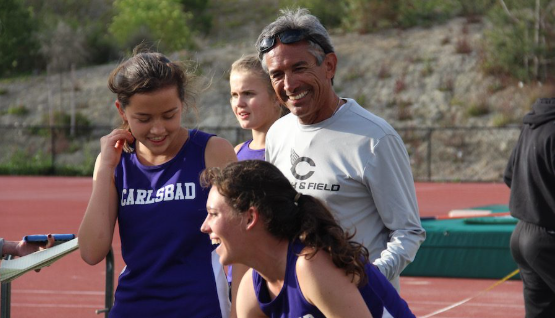Mentoring Track and Field and Cross Country Officials
By Julie Cochran, NFHS Director of Sports and Middle Schools on November 13, 2024 Track & Field/Cross Country article PrintMentoring is a vital process in many professions, but it holds a unique importance in the world of track and field and cross country officiating. The role of a mentor in this context goes beyond simply sharing knowledge—it involves nurturing the development of new officials, providing guidance through complex decisions, and fostering a culture of professionalism and integrity in the sport.
Mentoring is a relationship-driven process where an experienced individual (the mentor) guides, supports, and advises a less experienced individual (the mentee) to help develop their skills, knowledge, and confidence. In track and field officiating, mentoring plays a crucial role in preparing officials to handle the challenges they may face on and off the track or field, such as understanding complicated rules, managing conflicts, and maintaining fairness and integrity in competitions.
Mentoring is not a one-size-fits-all approach. Effective mentoring involves recognizing the unique needs and goals of the mentee, offering tailored guidance, and adjusting the mentoring style as necessary to ensure growth and development. It requires patience, empathy, and a commitment to the mentee's success.
Several challenges can arise in mentoring track and field officials:
- Diverse Learning Styles: Each mentee may have different ways of learning and absorbing information. Some may prefer hands-on experiences, while others might benefit more from theoretical discussions or written materials. A mentor must be flexible and adaptable to cater to these diverse learning styles.
- Balancing Critique with Encouragement: Providing constructive feedback is essential for growth, but it needs to be balanced with encouragement. Too much criticism can demotivate a mentee, while too little can leave them ill-prepared for real-life situations. Striking the right balance is key to effective mentoring.
- Time Constraints: Both mentors and mentees often have limited time due to other commitments. Finding mutually convenient times for mentoring sessions can be challenging, and mentors must maximize the quality and effectiveness of each interaction.
Dana Pappas, Director of Officials for the NFHS mentioned in a 2023 Track and Field Pre Meets Notes article that to be an effective mentor for track and field officials, one must embrace three essential roles: Consultant, Counselor, and Cheerleader.
Consultant:
As a consultant, the mentor provides technical expertise and practical knowledge. This role involves teaching the mentee about the rules and regulations of track and field and cross country, sharing best practices, and offering insights on how to handle various scenarios that may arise during meets. The mentor serves as a resource for knowledge, helping the mentee understand complex rules, proper procedures, and how to make quick, accurate decisions under pressure.
Counselor:
The counselor role focuses on offering emotional support and helping the mentee navigate personal and professional challenges. Track and field officiating can be stressful, with officials often facing criticism from athletes, coaches, and spectators. A mentor in this role listens actively to the mentee’s concerns, provides a safe space for discussing difficulties, and helps them develop resilience and coping strategies. Being a counselor also means helping the mentee identify their strengths and weaknesses and encouraging them to work on areas for improvement.
Cheerleader:
As a cheerleader, the mentor offers encouragement, celebrates successes, and motivates the mentee to persevere through difficult times. Mentoring is about inspiring confidence and helping the mentee build self-belief. The cheerleader role is crucial for maintaining morale and enthusiasm, particularly when the mentee faces setbacks or doubts their abilities. This role helps create a positive mentoring environment, fostering a sense of belonging and community within the officiating team.
Effective Mentoring Strategies
- Set Clear Expectations: Both the mentor and mentee should understand what they expect from the mentoring relationship. This includes setting specific goals, defining the scope of the mentorship, and establishing a communication plan.
- Regular Feedback and Reflection: Providing timely, constructive feedback is crucial. Encourage the mentee to reflect on their experiences and identify what they did well and areas for improvement.
- Be a Role Model: Lead by example. Demonstrate the qualities of a great official, such as fairness, integrity, effective communication, and calmness under pressure. A mentee often learns as much from observing a mentor’s behavior as they do from direct instruction.
- Encourage Continuous Learning: Instill a mindset of continuous learning and improvement. Encourage the mentee to attend workshops, read up on rule changes, and participate in discussions with other officials.
- Build a Supportive Network: Create opportunities for the mentee to connect with other officials, coaches, and mentors. Building a network can provide additional perspectives, support, and opportunities for growth.
We encourage officials’ organizations and state associations to develop mentor programs in their states. Mentorship can take place either within a formalized program or can be more informal. Whichever route your association decides to take, the certainty is that mentorship is critical to the retention of officials. To the mentors within officiating associations throughout the country– be there with and for your mentor and help them succeed WITH you. To those being mentored – make sure your mentor is someone who wants to be your partner in this journey of officiating, and who has your success at the center of what he/she is telling you. These basic principles will let you know if you are being an effective mentor OR if you are being effectively mentored.
Mentoring track and field officials is about more than just passing on knowledge—it's about shaping the future of the sport. By embracing the roles of consultant, counselor, and cheerleader, mentors can provide comprehensive support to new officials, helping them develop the skills, confidence, and resilience needed to excel. Despite the challenges, effective mentorship can lead to a more competent and confident officiating team, ensuring that the sport remains fair, competitive, and enjoyable for all participants.
If you have a topic, you would like me to address in my NOC newsletter article, please reach out to me: [email protected].
Julie Cochran, NFHS Director of Sports and Middle Schools
Most Recent Articles
- 2025 Performing Arts Education and Creative Industry Meeting Materials
- Boys Lacrosse Season Preview - 2025
- Girls Lacrosse Season Preview - 2025
- nfhs news Risk Minimization Focus of 2025-26 High School Spirit Rules Changes
- nfhs news Supporting High Schools, State Associations to Determine Eligibility, Transfer Rules






